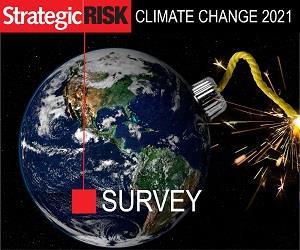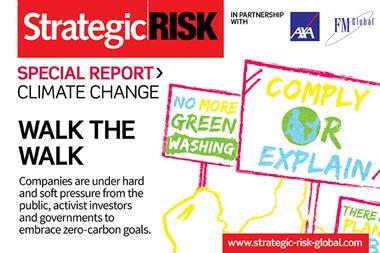Climate change is a truly global risk. Why risk managers need to consider the physical, reputational and transition risks arising from climate change.
A refusal to grasp the magnitude of the environmental challenge could cost reputations and even render business models obsolete. COVID-19 has been all-consuming, but could it now lead to a valuable perspective shift when it comes to climate change?
Momentum behind climate change has been gathering pace over the past two years and now, a global pandemic is likely to accelerate action in a number of areas. Changing market sentiment, driven by movements such as Schools Strike for Climate and Extinction Rebellion, is putting pressure on business and policymakers around the world.
In June, teen activist Greta Thunberg urged governments to treat climate change with a similar urgency to coronavirus and said the pandemic has proved the world can “act with necessary force”, she said.
Growing awareness of extreme weather and natural perils, and how they impact business and supply chains, is also driving attention to the physical effects of climate change. It is widely acknowledged that weather will become more extreme in the future and some natural perils - such as hurricanes, wildfires and floods - could become more intense. Attribution studies are beginning to assign a climate change footprint to some natural peril events.
In some industry sectors, reporting requirements around climate change is influencing how organisations - and their boards - think about the risks and opportunities arising from the “existential crisis” of our age. Anticipation of climate taxes and other levies are additional powerful incentives.
And in the future it may become more challenging to secure commercial insurance coverage action on climate change is not taken.
It is perhaps too soon to fully appreciate how the COVID-crisis will influence the climate agenda, but it seems clear that it will. The ways in which companies will take action to address and prepare for climate change, and the speed with which this will happen could be accelerated due to the pandemic.
There may be an increasing move to ‘onshoring’ supply chains in the future in order to avoid using suppliers in countries that are highly-exposed to natural perils. This could further encourage the development of the ‘new economy’, one enabled by technology, robotics and sustainable power sources.
It is important that risk managers consider both the physical and transition risks arising from climate change and the shift to a zero carbon economy. The speed and ways in which companies will need to change may be far more radical and much faster than previously imagined.
In this special Climate Change report, published in partnership with Airmic, FM Global and Swiss Re Corporate Solutions, we take an indepth look at the physical, transition and reputational risks associated with a changing climate and reveal how prepared risk managers are for the impact on their business, with exclusive survey data.
Click the link below to download the full report.
Downloads
Special Report - Climate Change
PDF, Size 2.99 mb





















No comments yet